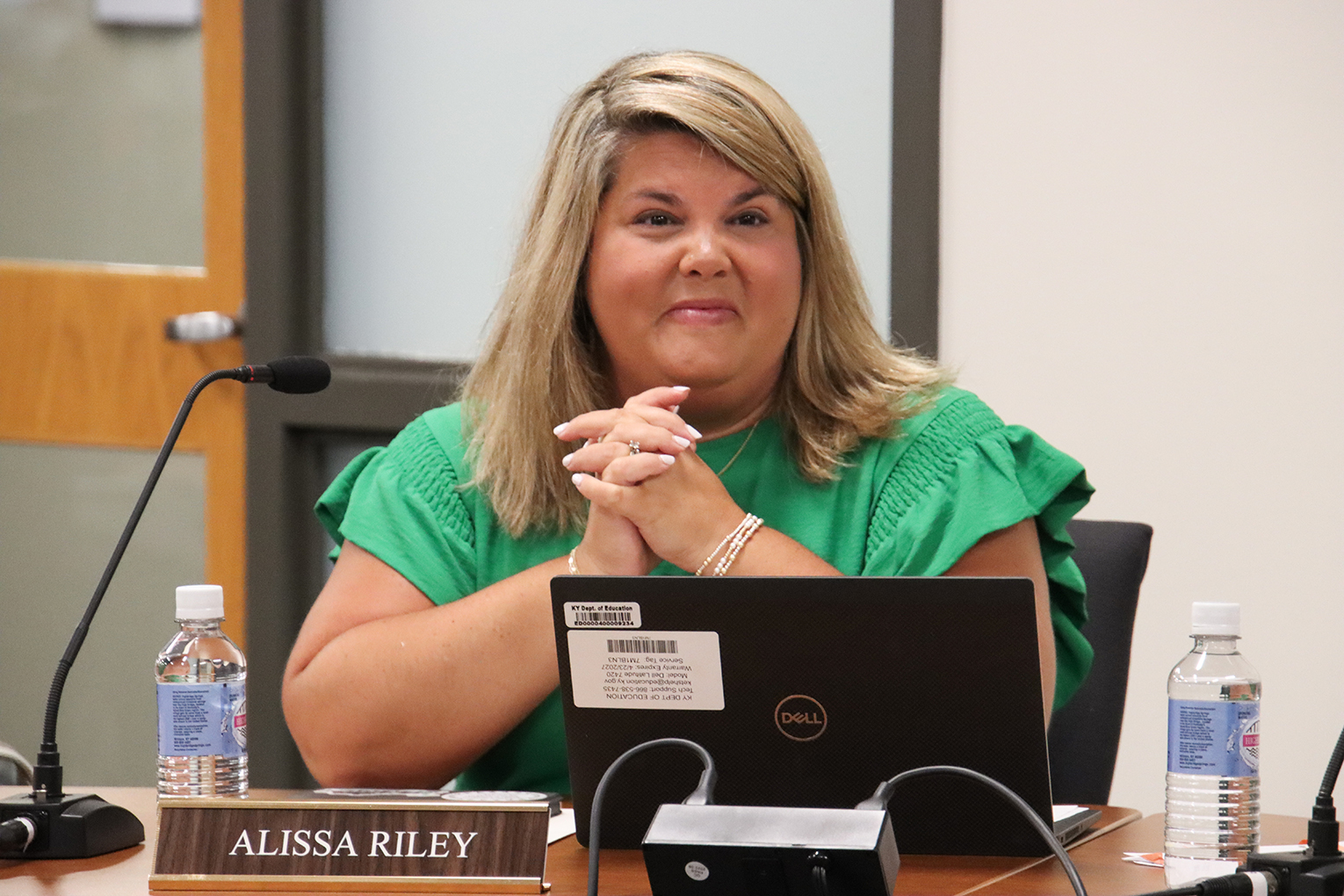
Joshua DeWar
By Joshua DeWar
joshua.dewar@jefferson.kyschools.us
I read a story recently about a woman named Molly Howard. In 1995, she worked at Jefferson County High School (JCHS) in Louisville, Ga. Living in Louisville, Ky., and Jefferson County, my interest was piqued from the minute I picked up her tale.
As I read her story, my interest in her endeavors grew. In fact, the more I read, the more I was determined to be just like Howard and share more with her than just the name of the place where we lived.
Howard worked at a school that is, today, much like mine. In 1995, her building had 80 percent of its students living in poverty. Only 15 percent of the students there continued on to college after graduation. The students everyone expected to succeed in that building did, she shared in her story, but she couldn’t help but wonder, “What was there to look forward to for the other 85 percent?”
Howard eventually became the principal at this school. It was a place where many teachers lived a defeatist lifestyle. Many believed some kids can and other kids cannot. It was just assumed that, along the way, those who can be taught will be educated and there will be some who fall through the cracks. I found myself nodding as I read, thinking that over the years, there have been moments where I, too, had fallen in with these sentiments.
Howard, however, refused to give up on anyone. In fact, as the school’s leader, she implemented a unique grading system that turned the building upside down. Under her system, the only grades offered at Jefferson County High School were A, B, C and NY. The NY? Not Yet.
When Howard assumed her role, students at JCHS had accepted a culture of failure. Many believed they were failures to the core, that they would never master a concept or pass a test. To them, getting a D or an F was an easy way out. They might get a poor grade, but at least they would be done with that struggle and move on.
In the new system, teachers defined up front what was required for an A, B or a C. If the student did subpar work and did not hit one of those targets, instead of failing a student, the teacher would say, “Not yet.” The students were told that they could not stop until they mastered the concept. This gave the students the mindset, “My teacher thinks I can do better. I don’t have it yet, but I will soon enough.”
It changed their expectations.
After the grading change, the school was reborn. Every member of the school community became more engaged, the school’s graduation rate increased dramatically and student test scores went up so much that remedial courses were eliminated. In 2008, the National Association of Secondary School Principals declared Howard the U.S. Principal of the Year for all of her efforts with students at JCHS.
Howard transformed her students by cultivating in them and the faculty the belief that all students could be successful. There were no easy outs. There were concepts that had to be mastered, even if they took longer than expected. Howard truly believed that every student was capable of doing acceptable work, that no student was doomed to failure. This belief changed her school completely.
Though a district as large as mine would have a hard time changing our grading system to something such as this, I thought this was an incredible idea. I began to wonder what would happen if I embraced Howard’s vision that every student could master every necessary concept all the time. Then I took it a step further: What if I stopped giving NIs and Us (or Ds and Fs) and simply gave out, at least in my own classroom Not Yets. What message would that send to my students?
I have a huge banner that hangs in the front of my classroom that says, “Life is tough, but we are tougher.” I do believe that every single one of my students has the resilience necessary to succeed in life. It is part of my job to teach them to think critically, analyze deeply and strive for success in all they do. But have I ever caved and given failing grades, simply because the child stopped trying, I was tired of teaching, and I was at my wit’s end? The answer is yes.
Why did I take the easy route? Weren’t my kids worth the extra effort? Shouldn’t I have differentiated instruction more? Didn’t that child really deserve a Not Yet and my extra love and support to get them to their “yet?” That answer is a resounding, “YES!”
As I move into the 2016-17 school year, my challenge to myself is to give, at least in my classroom, As, Bs, Cs and NYs this year. I want to communicate to parents and students that we are not going to stop until all students have mastered the basic skills in 2nd grade that they need to be successful in 3rd grade and beyond. From next school year forward, life will be about meeting students where they are and getting them to where they need to be, no matter what it takes.
So how about you? What will you do this fall? Will you join me on my quest to cultivate in all students a belief that they can be successful? When you want to give up and hand back an assignment with a D or and F on the top of it, will you? Or will you instead simply write, “Not yet,” across it and offer to meet with that student after school to help push him further on life’s path while cultivating in him the belief that he is capable of success?
Joshua DeWar is a native of Janesville, Wis. He has lived in the Louisville area since 2010. DeWar worked in higher education as a student affairs professional and administrator for nine years before moving to the K-5 classroom. He currently teaches 2nd grade at Engelhard Elementary (Jefferson County.) He holds a bachelor’s in French and elementary education from Ripon College, a master’s in college student personnel from Bowling Green State University, a master’s in teaching from the University of Louisville



Leave A Comment